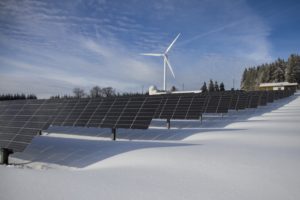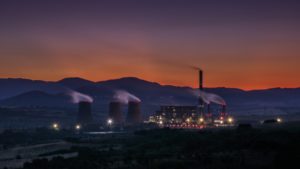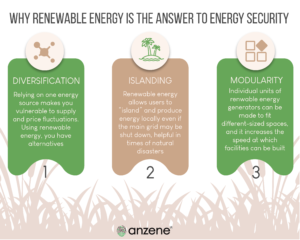 One of the many definitions of renewable energy is the ability of an economy to guarantee energy supply in a sustainable and timely manner at a price that does not constrain economic development (Intharak et al., 2007).
One of the many definitions of renewable energy is the ability of an economy to guarantee energy supply in a sustainable and timely manner at a price that does not constrain economic development (Intharak et al., 2007).
Energy security is especially of concern to the Asia-Pacific Economic Cooperation (APEC) region, as the population and consequently, economies are expected to experience massive growth. While this is a report dating back to 2007, a recent report from the Asian Development Bank identifies the same problem in the status quo: energy insecurity is widespread throughout Southeast Asia as economies are unable to provide a stable energy supply (Yoshino et al., 2020)
This problem is made worse by the Russian invasion of Ukraine, as the latest cut of Russian natural gas is expected to further destabilize the energy security within Asia (Gibson, 2022).
One of the solutions proposed by the International Energy Agency (2022) to address energy insecurity is a heavy investment in renewable energy. In this article, we’ll explore the reasons why clean energy is considered to be the antidote to energy insecurity.
Diversifying energy sources
When the energy supply chain is only reliant on only one specific type of fuel, it is highly vulnerable to supply shocks and price fluctuations (Cox et al., 2019). This is what happened to the European Union. Because it is heavily reliant on Russian energy imports which comprise the bulk of its imported oil, gas, and coal supplies, it is finding it hard to seek alternatives as it has banned the importation of Russian goods, including oil (Ellerbeck, 2022).

By introducing renewable energy into the mix, one supply shock in one type of fuel won’t affect energy security as much, given that there are many alternatives that can cover the energy demand of the affected fuel supply chain. In fact, this is an alternative that the EU is already looking into, as it has invested as the EU Commission has already proposed the need for 210 billion GDP in order to phase out Russian oil and turn to clean energy (Rankin, 2022).
Islanding renewable energy facilities
Another upside to renewable energy facilities is that they can support ‘islanding’ in times of natural disasters (Cox et al., 2019). Islanding refers to the capability of renewable energy facilities that allows them to isolate their own operation, independent of the main power systems, in order to continue producing power locally when the main system is compromised or temporarily unavailable.

This island resiliency proves to be useful in Pacific Island nations, where the systems are centralized and are often affected by natural disasters (Weir & Kumar, 2020).
Modularity of renewable energy
Lastly, the modular nature of renewable energy increases the options of possible locations for building (Cox et al., 2019). It also increases the speed to which renewable energy facilities can be built because modular systems can be rapidly deployed. Moreover, modular systems significantly reduce the costs of maintaining these facilities as damages need not mean the replacement of the entire system but merely a replacement of the affected module.
A modular system is a system that is comprised of individual smaller units, rather than one whole.

References:
Cox, S., Beshilas, L., & Hotchkiss, E. (2019). Renewable Energy to Support Energy Security.
National Renewable Energy Laboratory.
Ellerbeck, S. (2022, April 26). The EU depends on Russian energy. What are the alternatives?
World Economic Forum. https://www.weforum.org/agenda/2022/04/europe-russia-energy-alternatives
Gibson, L. (2022, July 29). Russia gas cuts stoke Asia’s energy security fears. Energy | Al
International Energy Agency. (2022, May 17). Southeast Asian nations face growing energy
security challenges and need to accelerate their clean energy transitions – News [Press release]. https://www.iea.org/news/southeast-asian-nations-face-growing-energy-security-challenges-and-need-to-accelerate-their-clean-energy-transitions
Intharak, N., Julay, J. H., Nakanishi, S., Matsumoto, T., Sahid, E. J. M., Aquino, A. G. O., &
APONTE, A. A. (2007). A Quest for Energy Security in the 21st Century. Asia Pacific Energy Research Centre.
Kowalski, G., & Vilogorac, S. (2008). Energy Security Risks and Mitigation: An Overview. UN
International Strategy for Disaster Reduction.
Rankin, J. (2022, May 19). EU plans ‘massive’ increase in green energy to help end reliance on
Russia. The Guardian. https://www.theguardian.com/environment/2022/may/18/eu-plans-massive-increase-in-green-energy-to-rid-itself-of-reliance-on-russia
Weir, T., & Kumar, M. (2020). Renewable energy can enhance resilience of small islands.
Natural Hazards, 104(3), 2719–2725. https://doi.org/10.1007/s11069-020-04266-4
Yoshino, N., Taghizadeh-Hesary, F., Chang, Y., & Le, T. H. (2020). Energy Insecurity in Asia:
Challenges, Solutions, and Renewable Energy. Asian Development Bank.